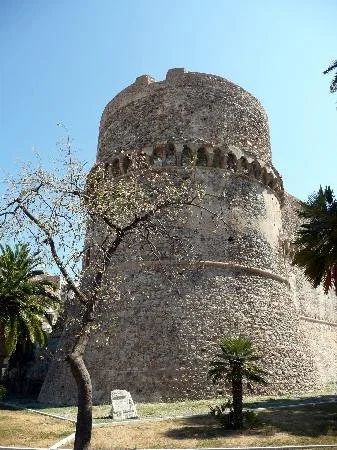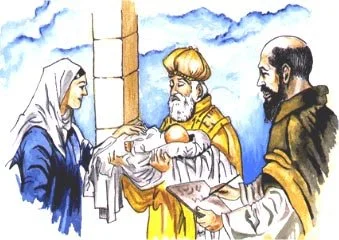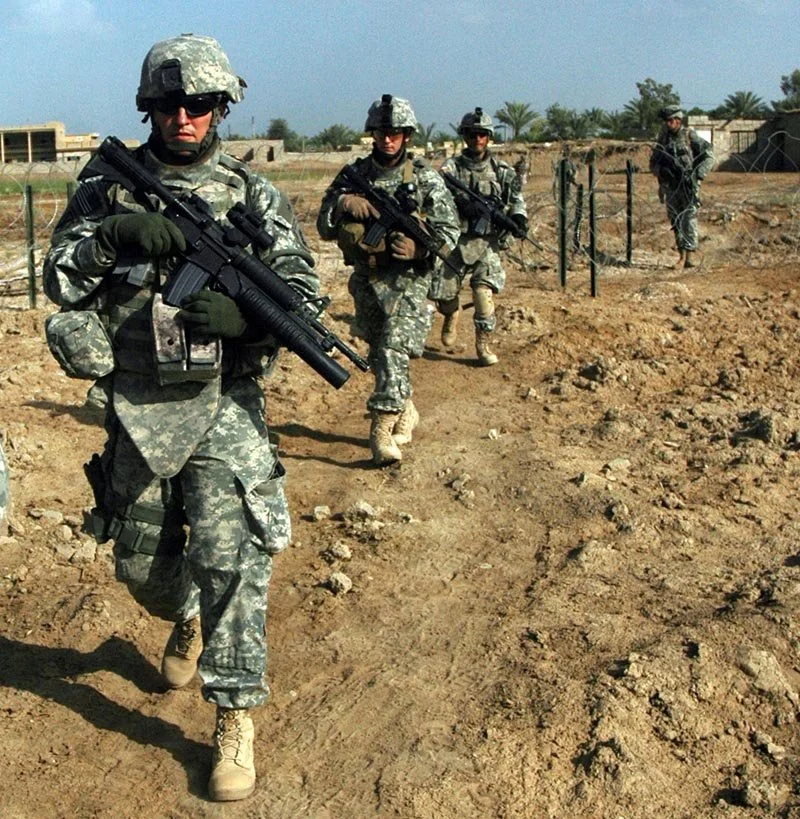Stages of Growth: “The Tower I Trust” – 2 Samuel 21:15-22:29
Have you lived with the pressure of a persistent and seemingly insurmountable problem for a long time, and felt overwhelmed by it? So did David. He may have been a king, but he was a king with nagging troubles. Today we’ll hear from his mouth how he saw God’s faithfulness in the defeat of the problem!
The end of the book of Samuel has four chapters that act as an appendix to the book. The appendix includes two major songs of King David, a sin that introduced the building of the Temple, and the two strange stories we are about to encounter.
Chapter 21 has two stories that sound like, “tying up loose ends from the past”. They are not attached to the time in the life of David, but are admittedly strange stories placed together near the end of the book of Samuel. The two stories are:
Last time we looked at five lessons that came from a famine because of Saul’s sin against Gibeon (21:1-14). The lessons were:
Silent suffering isn’t necessary – we can ask God about things that go wrong!
Guessing at God’s will is bad, while seeking God works!
God deals with sin in a consistent way, He doesn’t change.
God deals through unchanging covenants, and wants us to live up to ours!
Trouble can be a great educator to help me see what I wasn’t seeing!
As we wind down the pages of this book, a second story creeps into chapter 21 in verses 15-22. It is the story of another leftover nagging problem of David, followed by a song about the victory God gave him! The story is of the final end to the Goliath of Gath family and their insurrections (14:15-22).
Goliath, with whom David fought at the outset of his military career, had a number of offspring who were left over and needed to be dealt with.
David’s fight was a personal one (21:15a,16). David fought battles with this great adversary of God’s people repeatedly. Though he killed Goliath early in his fighting career, even before he was king, yet the Philistines came back and fought again a number of times in his life. We have only a few details about these continued incursions, but we know the problem continued. Remember that David killed Goliath (1 Sam. 17), and took his sword from the field of battle. It was later put back in David’s hands by the priests of Nob (1 Sam. 21:9). David was PERSONALLY hated by Goliath’s family, and that was a persistent sore that wore on him throughout his reign.
David wore out from the persistence of the problem, and his age. He needed the strength of his mighty me about him to win the battle (21:15b,17a-22).
David found himself celebrating not just what God did in his hands, but what God did through the hands of those around him, in obedience to the Lord and in His strength (22:1-51)
Key Principle: When we cry out, God will rescue us. He sees the truth – all the truth!
The Song of Celebration
Who is our God? (22:2-4)
This is where praise begins. It starts with understanding what God says about HIM, so we can make sense of all of history and our purpose. Knowledge of HIM is the source of our praise! Look at WHO He is (2 Sam. 22:2-4):
He is my Rock (Sela’) of Refuge (chawsaw, as in machase). This speaks of a natural place prepared for the warrior without his aid, as a place to hide from the onslaught of an enemy. God has prepared for me places to hide that I did not build. He provides a way of escape from temptation, or a cave when the storm approaches. Even though I didn’t make it, I can use it.
He is my constructed battle shield (magen: either battle protection), my constructed fortress (metsadati), my built up high strong tower (misgav) of retreat hideaway of protection (manocee). This speaks of the carefully constructed place of refuge that was built in times of peace, so that in times of war, the warrior could find the special place to stand.
A constructed fortress provides a place of protection. All the strength in the world is useless unless we have the proper protection. Ask General George Custer. “The regiment consisted of approximately 750 officers and enlisted men, and was accompanied by a contingent of about forty Arikara Indian scouts. Also in the column were three companies of infantry and a Gatling gun platoon, all supported by wagons carrying supplies. 2000 rounds of ammunition per company. Each soldier was armed with the single-shot, .45 caliber rifle with 100 rounds ammunition The troopers also carried a .45 caliber, single-action revolver with twenty four rounds of ammunition.” Lots of fire power, Lots of strength, but no fortress to provide protection. And we all know the outcome.
All he needed was a high vantage point and a built place of fortification, and he would be untouchable! In the Battle of Little Big Horn, these would have changed the course of the battle. There was a place near the battlefield called Weir point. It was the highest point along the river and would have afforded Custer an unlimited view of the Indian village had he gone there. For whatever reason, he chose not to go and because of his lack of perspective, he made some fatal choices. No high place, no built fort, no protection.
He is my Deliverer (m’pawlati; from pawlat: to be whisked away in a rescue) and Savior (yeshua). This speaks of the time when built defenses fail and no safe place is found, and the cavalry comes in to save the day. He comes when my signal flare is fired, because I have no way to save myself! (22:4).
I would like to give you a homework assignment. Sometime at home…during your time of personal prayer and devotions… Take out a piece of paper and a pen… and begin to look back over your life… think back about those times that God was with you… think back about those times that God answered your prayers… think back about those times that God spoke to you… think back about those times that God intervened in your life… and begin to write about it! Don’t worry if you aren’t a skilled poet like David… But just write down your praise to God… let it flow from your heart. Like I mentioned earlier… it is always good to let people know that you love them… well, let Jesus know that you love Him… and let Him know why… and do it on paper… It will be meaningful to Him… and it will be a blessing to you as well.
Let me share my experience (David sings – 22:5-16)
Where I was (22:5-7):
I was being swallowed by waves that overwhelmed me (22:5).
I was dying inside (22:6).
I was in a squeezed place and I cried out to God (22:6).
What God did (22:8-25):
He heard from Heaven’s Temple (22:7). God listens when we cry. Philippians 4:6 Be anxious for nothing, but in everything by prayer and supplication with thanksgiving let your requests be made known to God. 7 And the peace of God, which surpasses all comprehension, will guard your hearts and your minds in Christ Jesus.
He responded in a storm on earth (22:8-16):
The earth shook and trembled (22:8).A storm came with a hamseen wind (22:9).Thick clouds followed (22:10).He blew a mighty wind (22:11).He darkened the sky and brought strong rains (22:12). Thunder and lightening struck the earth (22:13-15).Eroded cracks formed and were exposed from the rushing waters and sharp winds (22:16).
3. He snatched (lawkhak) me from the raging sea (22:17). **Note that God did not cause me to avoid the pain and squeezed place. He waited for my call, then rescued!
Paul Harvey told about a 3-year-old boy who went to the grocery store with his mother. Before they entered the grocery store she said to him, “Now you’re not going to get any chocolate chip cookies, so don’t even ask.” She put him up in the cart & he sat in the little child’s seat while she wheeled down the aisles. He was doing just fine until they came to the cookie section. He saw the chocolate chip cookies & he stood up in the seat & said, “Mom, can I have some chocolate chip cookies?” She said, “I told you not even to ask. You’re not going to get any at all.” So he sat back down. They continued down the aisles, but in their search for certain items they ended up back in the cookie aisle. “Mom, can I please have some chocolate chip cookies?” She said, “I told you that you can’t have any. Now sit down & be quiet.” Finally, they were approaching the checkout lane. The little boy sensed that this may be his last chance. So just before they got to the line, he stood up on the seat of the cart & shouted in his loudest voice, “In the name of Jesus, may I have some chocolate chip cookies?” And everybody round about just laughed. Some even applauded. And, according to Paul Harvey, due to the generosity of the other shoppers, the little boy & his mother left with 23 boxes of chocolate chip cookies.
4. He set me upon a place that I could not be destroyed even when I was not strong enough to win the fight (22:18).
In the late 1800’s Ira Sankey was very famous for being D.L. Moody’s song leader. On Christmas Eve of 1875, he was traveling up the Delaware River on a steamboat. Some of the passengers recognized him and asked him to sing for them. So, he sang the old hymn, “Savior Like a Shepherd Lead Us.” One of the lines in that hymn says, “We are thine, do thou befriend us. Be the Guardian of our way.” As Sankey finished the hymn, a man stepped out from the shadows. He asked Sankey if he had ever served in the Union Army. He said he had. Then the man asked, “Can you remember if you were doing picket duty on a bright, moonlit night in 1862?” Sankey was very surprised and said, “yes.” The man looked up at him and said, “I was there too. But I was in the Confederate Army. It was my job to shoot you that night. As you stood there, completely exposed in the bright moonlight, I drew my aim. Then you lifted your head and began to sing the same song you just sang. When you finished, it was impossible for me to take aim again. I thought, ‘The Lord who is able to save that man from certain death must surely be great and mighty.’”
He upheld me when they could have crushed me on my own (22:19).
He relieved me of the tight place and gave me room to breathe well (22:20; ct. 22:7 “distress” which is b’tsar: in a tight squeeze).
He spent time delighting in me and hugged me as one He missed! (22:20).
He has rewarded me and known that I was clean before Him (22:21-25).
What God knows (22:26-**):
He know if our actions toward others are kind (22:26a).
He knows if the surface truth is our real intention (22:26b).
He knows if we have an untainted heart (22:27a).
A little boy was in the grocery store with his Mom. He just happened to be standing next to an open box of chocolate chip cookies. The grocer spotted him and said, “Son what are you up to?”“Nothing,” replied the boy. “Nothing?” questioned the grocer. “Well it sure looks to me like you were trying to take a cookie.” “Well, you’re wrong mister. I’m trying NOT to.”
He is more clever than our attempts to finesse and decieve Him (22:27b).
He knows if we are unfairly hurt, or if we are proud and deceptive (22:28).
He lights up the truth in my life (22:29).
Key Principle: When we cry out, God will rescue us. He sees the truth – all the truth!
Five small boys had obtained permission from their parents to camp outside their small town near a wooded area. They were having a wonderful time until darkness settled in. Then they began to have certain fears and misgivings about their adventure. However, they eventually snuggled down in their sleeping bags under the tent hey had set up. They talked loudly among themselves and laughed a great deal to counteract fear, and were finally settling down then they heard a noise rustling in a nearby bush. They panicked until their flashlight revealed a friendly dog. In the middle of the night the wind howled through the trees making a moaning noise. The rumble of distant thunder kept coming closer on the winds of an approaching storm. The closer the storm came the more they huddled in fear. Then they heard the sound of footsteps outside. A new fear assailed them. But one fellow had the courage to look out under the tent flap and there, lantern in hand, stood his father, who had become concerned for the boys and had come to stay out the rest of the night with the boys. The young boy said: “It’s all right now, fellows, my Dad is here.”
Aren’t you tired of trying to live without your Father to protect you and walk with you?




